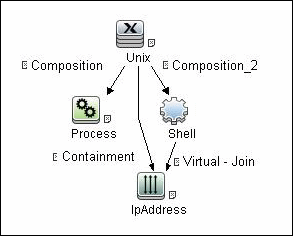Searching the Help
To search for information in the Help, type a word or phrase in the Search box. When you enter a group of words, OR is inferred. You can use Boolean operators to refine your search.
Results returned are case insensitive. However, results ranking takes case into account and assigns higher scores to case matches. Therefore, a search for "cats" followed by a search for "Cats" would return the same number of Help topics, but the order in which the topics are listed would be different.
| Search for | Example | Results |
|---|---|---|
| A single word | cat
|
Topics that contain the word "cat". You will also find its grammatical variations, such as "cats". |
|
A phrase. You can specify that the search results contain a specific phrase. |
"cat food" (quotation marks) |
Topics that contain the literal phrase "cat food" and all its grammatical variations. Without the quotation marks, the query is equivalent to specifying an OR operator, which finds topics with one of the individual words instead of the phrase. |
| Search for | Operator | Example |
|---|---|---|
|
Two or more words in the same topic |
|
|
| Either word in a topic |
|
|
| Topics that do not contain a specific word or phrase |
|
|
| Topics that contain one string and do not contain another | ^ (caret) |
cat ^ mouse
|
| A combination of search types | ( ) parentheses |
|
Sun Cluster by Shell Job
This section includes details about the job.
ID:Sun_Cluster_by_Shell

CI Attribute Conditions
|
Attribute |
Condition |
|---|---|
|
Process |
|
|
Shell |
|
|
IpAddress |
|
None
See the prerequisites in How to Discover Sun Cluster.
The discovery flow for the Sun Cluster by Shell job is as follows:
-
Get the cluster configuration (using the command /usr/cluster/bin/scconf -pv), including:
-
Cluster name
-
Names of cluster nodes
-
Transport adapters
-
Quorum devices
-
- Get the cluster version (using the command /usr/cluster/bin/scinstall –p).
-
Get the quorum status (using the command /usr/cluster/bin/scstat -q).
-
Analyze the cluster nodes that were found and resolve their hostnames to IPs.
-
Get the statuses of the cluster nodes (using the command /usr/cluster/bin/scstat -n).
-
Get the standard network information, specifically netstat information (using the command /usr/bin/netstat -np). This information is used to resolve MAC addresses of transport adapters on the cluster node that the job connected to.
-
Resolve IP addresses of transport adapters to their MACs via the ARP table for cluster nodes that are not the node the job is currently connected to (using the command /usr/sbin/arp <IP>).
-
Get cluster resources (using the command /usr/cluster/bin/scrgadm –pvv), including:
-
Resource Groups
-
Resources. Host names in resources of types LogicalHostname or SharedAddress are resolved to IPs.
-
-
Get statuses of resource groups (using the command /usr/cluster/bin/scstat -g).
-
Get transport paths (using the command /usr/cluster/bin/scstat –W).
-
Create the result vector with the topology discovered and send it to the UCMDB.











